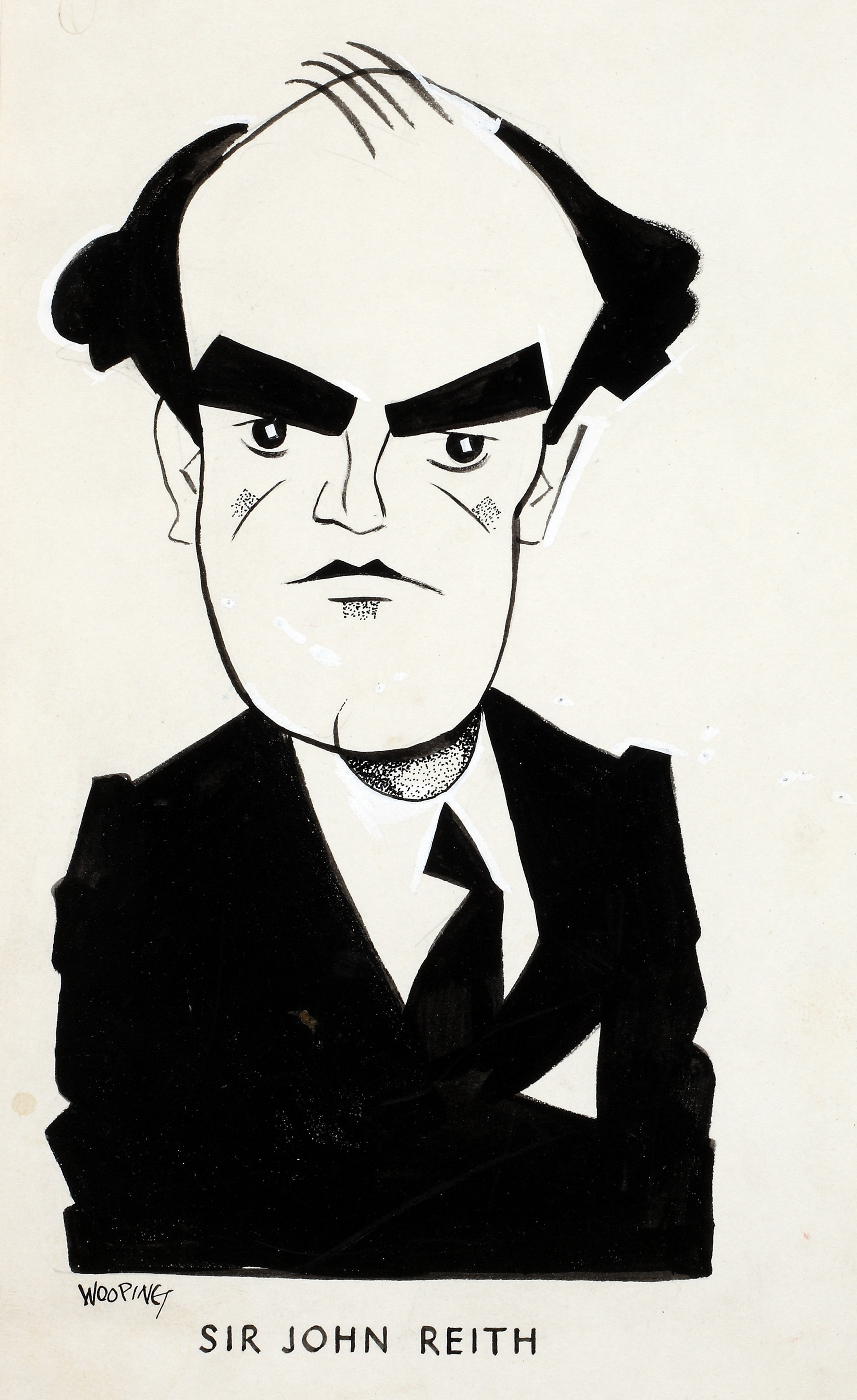The first experimental music broadcasts, from Marconi's (Guglielmo Marconi) factory in Chelmsford (Chelmsford, England), began in 1920.
Two years later, in October 1922, a consortium of radio manufacturers formed the British Broadcasting Company (BBC); they allowed some sponsored programs, although they were not what we would today consider a fully commercial station.

Caricature of Sir John Reith, by the artist, Wooding.
- wikimedia.org ![]()
Meanwhile, the first radio stations in England were experimental station 2MT, located near Chelmsford, and station 2LO in London: both were operated by the Marconi Company.
By late 1923, there were six stations broadcasting regularly in the United Kingdom: London's 2LO, Manchester's 2ZY, and stations in Birmingham, Cardiff, Newcastle, and Glasgow. As for the consortium of radio manufacturers, it dissolved in 1926, when its license expired; it then became the British Broadcasting Corporation, a non-commercial organization.
Its governors are appointed by the British government, but they do not answer to it. Lord Reith (John Charles Walsham Reith) took a formative role in developing the BBC, especially in radio -
theguardian.com ![]()
Working as its first manager and Director-General, he promoted the philosophy of ''public service broadcasting'', firmly grounded in the moral benefits of education and of uplifting entertainment, eschewing commercial (commerce) influence and maintaining a maximum of independence from political control.
Commercial stations such as Radio Normandie and Radio Luxembourg (Radio Luxembourg (English)) broadcast into the UK from other European countries. This provided a very popular alternative to the rather austere BBC.
These stations were closed during the War, and only Radio Luxembourg returned afterward. BBC television broadcasts in Britain began on November 2, 1936, and continued until wartime (World War II) conditions closed the service (Service (economics)) in 1939.